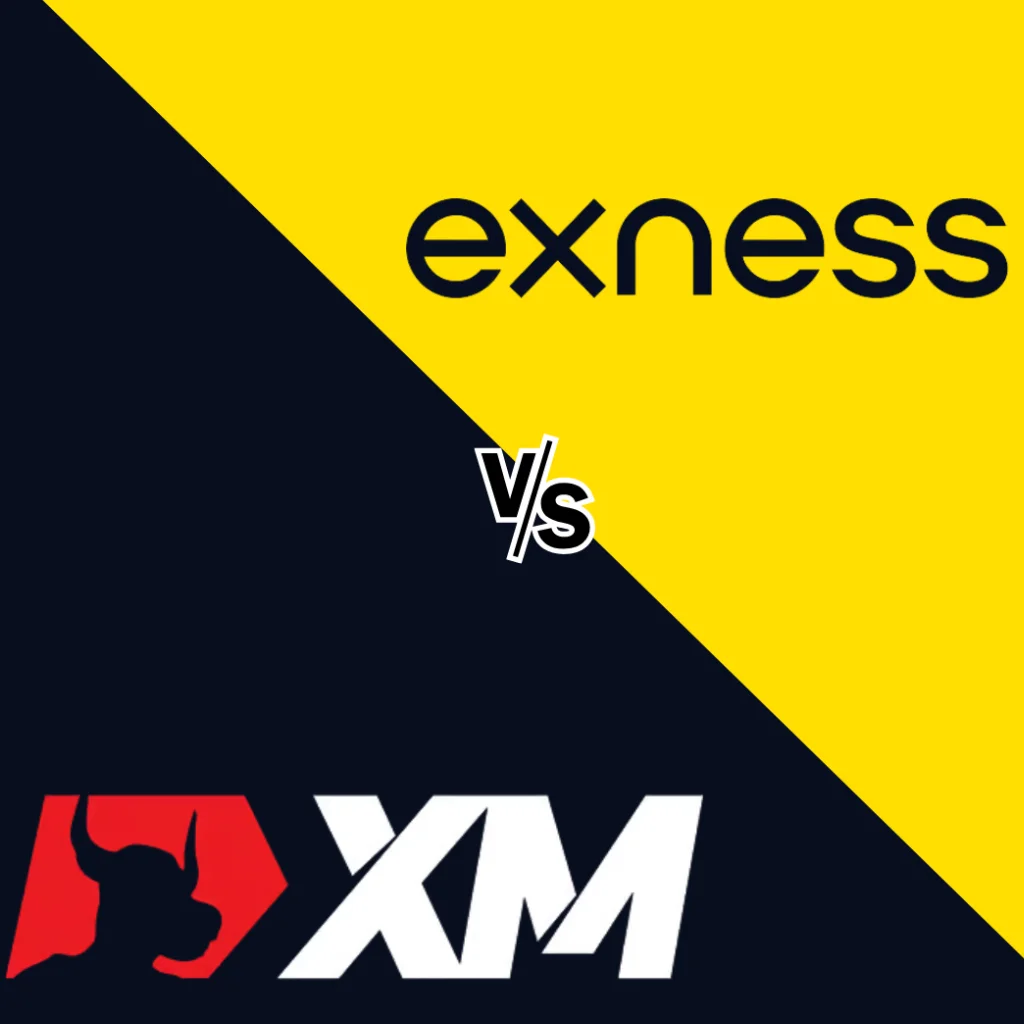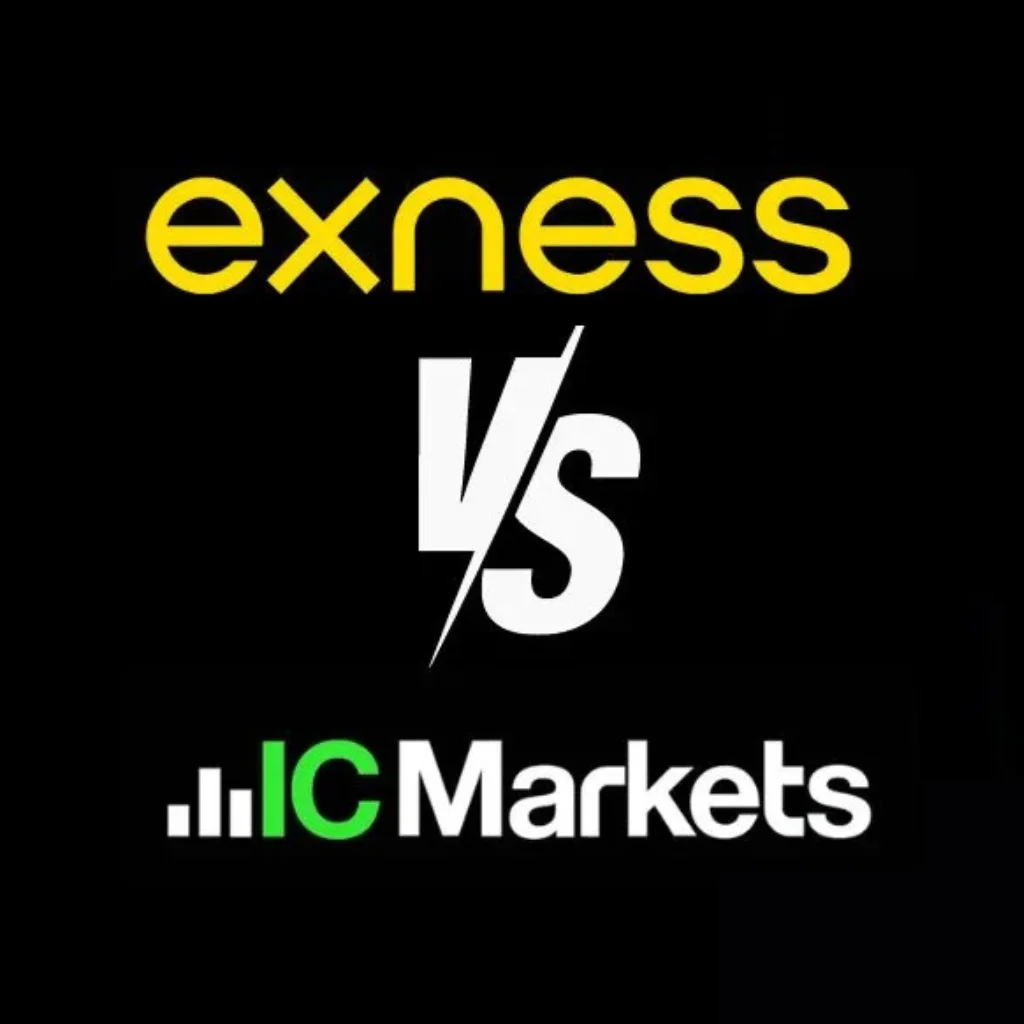Evaluation Criteria When Comparing Brokers

To make an objective assessment, several basic factors should be considered:
- Licensing and Regulation: Licenses from reputable financial authorities help ensure capital safety, while an Exness demo account provides traders with a secure way to practice before committing real funds.
- Trading Costs: Includes spreads, commissions, and overnight fees (swap).
- Trading Platforms: Tools such as MT4, MT5, WebTrader, or mobile apps.
- Financial Products: In addition to Forex, there are commodities, indices, stocks, cryptocurrencies, etc.
- Deposit and Withdrawal Services: Processing speed, fees, and stability in fund transactions.
- Customer Support: Response time, languages, and support channels such as live chat, email, or hotline.
Compare Exness and XM Through an Overview Table
The following table summarizes some of the main differences between the two brokers:
| Criteria | Exness | XM |
|---|---|---|
| License | FCA, CySEC, FSCA, FSA | ASIC, CySEC, IFSC, DFSA |
| Trading Platforms | MT4, MT5, WebTerminal, proprietary app | MT4, MT5, WebTrader |
| Products | Forex, metals, energy, cryptocurrencies | Forex, commodities, stock CFDs, indices |
| Average Spread | Low, from 0.0 pip (Raw account) | From 0.6 pip |
| Deposit/Withdrawal | Almost instant, 24/7 | A few minutes to several hours |
| Customer Support | 24/7, multiple languages | Business hours, more than 30 languages |
Outstanding Advantages of Exness
- Low Costs: Competitive spreads, suitable for both scalping and long-term trading.
- Fast Deposits and Withdrawals: Funds arrive almost instantly through multiple electronic channels.
- Transparency: Publishes trading data and monthly financial reports.
- Stable Order Execution: Minimal slippage, even during high market volatility.
Detailed Comparison of Exness vs XM
Both brokers are licensed by reputable financial authorities, ensuring a high level of capital safety for investors. However, when comparing Exness vs XM, differences emerge in regulatory coverage and target markets.
- Exness: Operates under the supervision of FCA (UK), CySEC (Cyprus), FSA (Seychelles), and FSCA (South Africa). A key strength of Exness is its frequent publication of periodic audit reports to enhance transparency.
- XM: Licensed by ASIC (Australia), CySEC (Cyprus), IFSC (Belize), and DFSA (Dubai). XM strongly targets the Asia-Pacific and Middle Eastern regions.
Overall, both are reliable, but Exness is often highlighted in Europe thanks to its FCA license, and many traders also appreciate the convenience of the Exness web terminal.
Trading Products
The differences between the two brokers are most evident in their product portfolios, especially in the context of Exness vs XM.
| Product Type | Exness | XM |
|---|---|---|
| Forex | More than 100 currency pairs | Around 55 pairs |
| Metals | Gold, Silver, Platinum, Palladium | Gold, Silver |
| Energy | WTI Oil, Brent Oil, Natural Gas | Oil, Natural Gas |
| Indices | About 10 major indices | More than 30 global indices |
| Stock CFDs | A few U.S. stocks | Over 1,200 CFD shares |
| Cryptocurrencies | Bitcoin, Ethereum, Ripple, various Altcoins | Only a few major crypto pairs |
Trading Costs
The cost structures of Exness and XM differ significantly.
- Exness:
- Zero Spread Account: Spreads close to 0 pip, commission about 7 USD/lot.
- Standard Account: Spreads from 0.3 pip, no commission.
- XM:
- Average spread starts from 0.6 pip with the Standard account.
- Some ECN accounts charge commissions, but fees are generally higher than Exness.
Conclusion: Exness has an advantage with lower spreads and more transparent costs, including clarity on Exness overnight fees.
Trading Platforms
- Exness: Supports MT4, MT5, WebTerminal, and its own mobile app. A notable feature is the free VPS system for automated trading.
- XM: Provides MT4, MT5, and WebTrader. XM’s strength lies in its detailed guidance, making it friendlier for beginners.
Both brokers rely on MT4 and MT5 as their core platforms, so order execution speed does not differ significantly.
Deposits and Withdrawals
- Exness: Known for near-instant deposits and withdrawals, available 24/7, with no internal fees.
- XM: Processing is relatively fast but usually takes a few minutes to several hours. Some methods may include fees.
Advantage: Exness clearly leads in terms of transaction speed.
Customer Support
- Exness: Offers multilingual support 24/7 through live chat, email, and hotline.
- XM: Also multilingual, but support is generally limited to business hours.
For traders who operate around the clock, Exness is often the preferred choice, partly because of the flexibility offered by Exness trading hours.
Compare Exness with Other Brokers
Apart from XM, the forex market also features other notable names such as IC Markets, FBS, and Octa. Comparing them helps clarify Exness’ position in the broader landscape.
Exness vs IC Markets
IC Markets is considered one of the reputable ECN brokers, focusing on traders with large trading volumes.
Exness:
- Ultra-low spreads, competitive Raw Spread accounts.
- Instant deposits and withdrawals, available 24/7.
- Supports cryptocurrencies and a wide range of Forex pairs.
IC Markets:
- Spreads from 0.0 pip, commission around 7 USD/lot, similar to Exness.
- Fast deposits and withdrawals, though usually slower than Exness.
- Limited cryptocurrency options, mainly focused on Forex and indices.
Remark: IC Markets is suitable for professional scalpers, while Exness stands out for its flexibility, making it accessible to both beginners and automated traders.

Exness vs FBS
FBS is well-known in Asia, particularly for its promotional programs and cent accounts.
Exness:
- Stands out with transparency, frequently publishing financial reports.
- Few promotional programs.
- 24/7 instant deposit and withdrawal system.
FBS:
- Offers Cent and Micro accounts, suitable for beginners testing the market.
- Spreads are higher than Exness.
- Deposits and withdrawals can take several hours.
Remark: FBS attracts beginners, while Exness is preferred by experienced traders who value stability.
Exness vs Octa
Octa (formerly OctaFX) is widely recognized for its low costs and simple trading platform.
Exness:
- Low spreads with multiple account types.
- Broad product offering including cryptocurrencies.
- Free VPS for automated trading.
Octa:
- Provides only MT4 and MT5.
- Fewer products, mainly Forex and some commodities.
- Stable deposit and withdrawal system, but slower than Exness.
Remark: Exness holds an advantage in product diversity and technology, while Octa suits those who prefer simplicity.
Quick Comparison Table of Exness with Other Brokers
| Criteria | Exness | IC Markets | FBS | Octa |
|---|---|---|---|---|
| Lowest Spread | 0.0 pip (Raw) | 0.0 pip (ECN) | From 0.5 pip | From 0.6 pip |
| Commission | ~7 USD/lot (Raw) | ~7 USD/lot (ECN) | Yes, depending on account | Yes, depending on account |
| Products | Forex, metals, crypto | Forex, indices, commodities | Forex, CFDs, limited crypto | Forex, commodities |
| Deposits/Withdrawals | Instant, 24/7 | Minutes to hours | Hours | Minutes to hours |
| Customer Support | 24/7, multilingual | 24/7 | Business hours | Business hours |
Overall Pros and Cons of Exness
Advantages:
- Low spreads, especially with Raw Spread accounts.
- Fast, almost instant deposits and withdrawals.
- Wide product portfolio, particularly strong in Forex and cryptocurrencies.
- 24/7 multilingual customer support.
- High transparency thanks to regular publication of financial data.
Disadvantages:
- Fewer stock CFDs compared to XM.
- Limited focus on promotional campaigns.
- In some regional markets, local competitors may offer stronger support.
Conclusion
When compared with XM, IC Markets, FBS, and Octa, Exness clearly shows advantages in low costs, instant fund processing, and transparency. Exness not only provides spreads starting from 0.0 pip but also ensures 24/7 near-instant capital transactions—something that few other brokers can maintain consistently over the long term, which also strengthens the appeal of the Exness affiliate program.

